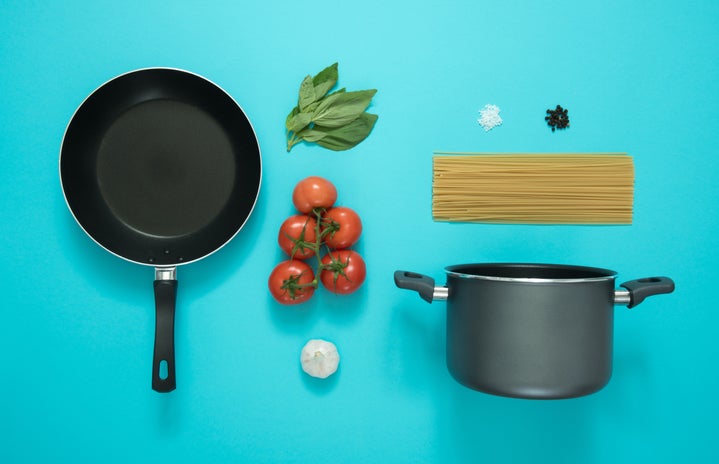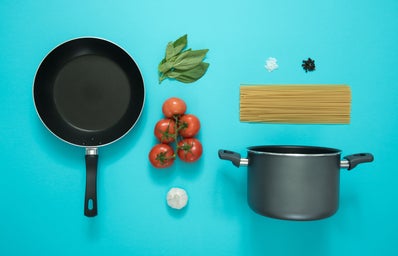As a second year uni student who still goes home for every holiday, I may be under-qualified to write this article. But I genuinely love cooking, and I look forward to my return to Bristol in part because I get so excited to meal plan, control my own fridge/cupboard, and make food that I like every night. So, with that, here are my top tips for making it manageable:
- Batch cook
-
Making a new meal every night is exhausting! Bigger portions of your meals makes each meal cheaper, faster and less effort. To get started just buy some Tupperware and double the ingredients the next time you cook. Leftovers are just a gift to your future self.
If you get bored of eating the same thing on repeated days, its easy to use the same base but change it up. For example, Monday’s chilli and nachos can become burritos on Wednesday.
- Freeze
-
Once you start batch cooking, it is so much better to freeze your leftovers than refrigerate them. Especially if you don’t like to eat similar things in the week, you can eat leftovers from weeks ago if they’ve been frozen.
This works for any foods you don’t use regularly, too. I have herbs, whole chillies, pesto and pitas in the freezer.
- Food plan
-
Making a proper food plan for the week and then turning it into a shopping list is the best way to keep to a food budget and avoid the panic of having nothing in to eat. If you’re struggling with making one my suggestion would be to write down all the ingredients for two breakfasts and four meals, and then figure out what other meals you can make with those ingredients. Lunch can always be leftovers.
- Seasoning
-
One of the hardest parts of learning to cook is figuring out how to add flavour. Quick rundown:
Typically, onions and garlic (alliums) add to everything. Don’t cook without them.
Chilli powder, cayenne pepper and chilli flakes basically all do the same thing – add spice.
Turmeric, cumin and coriander are stronger and add more specific flavour. They go with a wide variety of foods but are not always necessary. I like to put them in curries.
Garam Masala – a mix of Indian spices, needed for most curries.
Star anise, cinnamon, fennel, cloves, and Szechuan or black pepper – these make up Chinese five spice! They can be used both together and apart, or just make it easy for yourself and buy the premix – it’s good for noodles.
Basil, oregano, thyme, marjoram, sage, parsley – typically found in herb mixes. They can be bought fresh or dried and are good in almost everything, especially to add more flavour to British dishes.
- Adapting recipes
-
Knowing how to change recipes you find online into recipes you like, or recipes that are easier and cheaper to make, makes cooking so much more fun. It’s hard to know what substitutes are okay to make, especially without practice, but the best place to start is replacing vegetables with ones you like, seasoning more or less than called for, or changing the carbs.


